History of Tanzania to the Recent Past
Lecture 16
NATIONALISM AND INDEPENDENCE
INTRODUCTION
In this lecture we examine, the concept of African Nationalism, Independence and the development f nationalism and struggles for Independence in Tanganyika.
OBJECTIVES
At the end of this lecture you should be able to:-
-Describe the meaning of African nationalism and Independence
-Examine Africans nationalism in Tanganyika.
AFRICAN NATIONALISM AND INDEPENDENCE
The Concept of African nationalism
Reverend Ndabaningi Sithole argued that African nationalism as the desire of the African people to rule themselves and it is their desire to terminate all foreign rules. Basically African nationalism is the political will of the African people to oppose foreign domination in order to instill African rule. From this point of view African nationalism was an action in which African people struggled to get rid of colonial rule and gain African self Independence.
Nationalism is an expression of hostility to alien rule. In the colonial context, nationalism is anti-colonialism. Colonialism, therefore, should be regarded as one of the major progenitors-ancestors of African nationalism, because any people subjected to alien rule will struggle to overthrow that rule. The process may take a generation or a century, but it is inevitable stage (by S. Kiwanuka).
Nationalism is a consciousness on the part of individuals or groups of people regarding their membership of a nation state either already existing or to which they aspire. It is also a desire to achieve political and economic freedom over all social and economic development, as well as the cultural revival of that national state (by Adu Boahen)..
Nationalism is a patriotic sentiment or activity on the part of a group of Africans held together by the bonds of common language and common historical experience to impose their right to live under a government of their own making for the preservation of their political, economic, and social interests (by K.B.C. Onwubiko).
Nationalism is the feeling of national consciousness or awareness by the people that they are members of a nation state and desire freedom from colonial rule (by Michael Crowder
Independence
The first president of Tanzania late Julius Nyerere defined Independence as national freedom in which the Africans have liberty, govern themselves without foreign interference and domination. That imply a country which was under chain of colonial rule attain her freedom and autonomy to decide and implement her social, political and economic policies for betterment her citizens.
Nationalism and Independence in Tanganyika
The process of decolonization
The process of decolonization or national liberation was fundamental in Africa, for it allowed African states to regain their independence, which they had lost for more than half a century. The rise of African nationalism dates back to the period of colonial conquest and the imposition of colonial rule on one hand and primary African resistance against colonial rule on the other hand. But later, the intensification of exploitation stimulated the nationalistic struggle.
Forms of liberalizations
They were four types/methods that Africans applied in their struggle to liberate themselves from the colonial domination,
a) Liberation by constitution/ dialogue/ peacefully.
This involved intensive negotiation between the colonialists and African nationalists e.g. the political independence of Tanganyika, Ghana, Uganda, Zambia etc. all applied negotiation or peaceful means to get their independence.
b) Liberation by revo1ution
This was the type of liberation which involved complete overthrow of the existing political system. This existed in colonies where independence was given to the minority at the expenses of the majority, the case in point is in Zanzibar where minority Arabs were granted independence by the British which prompted the majority blacks to make a revolution in 1964, and replaced with another new political system that is supported by the masses. It took place even Egypt and Libya. Liberation by revolution is always sudden and involves bloodshed.
c) Liberation by armed struggle/arbitration:
This was conducted In the situation where peaceful means failed and the imperialist were reluctant to negotiate or to give independence to the Africans. In such situation the Africans picked up arms to fight the imperialists by force as a method to achieve their independence it involved bloodshed use of guerrilla warfare. For example in Zimbabwe, Kenya, Angola, South Africa, Namibia, Mozambique
d) Combination of constitution and armed struggle:
These liberations combined both methods. Firstly the Africans resorted to armed struggle as a way to achieve their independence and then applied dialogue/peaceful means to solve the problems of their independence, this happened in Kenya and Zimbabwe.
African nationalism and struggle for independence
Nationalism literally refers to the desire, love, or sprit for ones nation. In Africa the term nationalism has been used to signify the struggle of independence or self determination against foreign domination, in case of Europe the term nationalism has been used to signify Struggle for national unification in Germany and Italy and to acquire oversea colonies.
Some scholars define nationalism as feeling of national consciousness or awareness by the people of the same state and desire for freedom from colonial rule.
Nationalism in Africa is divided into two phases according to the period;
i. Nationalism before 1945
ii. Nationalism after 1945 before 1945
In the first decades of colonial rule most East African communities experienced only spasmodic contacts with the white man. But by the mid of 1 920s, the activities of the government officials, missionaries and settlers were beginning impinge or to affect much more direct on the lives of many Africans. Acts like land alienation, forced labor injustice and taxation now were affecting the Africans more.
As in most other part of tropical Africa the missionaries proved themselves the most vigorous alien stimu1ators of change and their success measured in the statistics of conversion, was often remarkable. But excessive missionary pressure could serve to produce countervailing African nationalism as to protect their culture.
The struggle for self determination and resistance against the intruders begun in Africa immediately after the inception of colonialism in around 1890s. The Africans started to resist colonial domination in the early time e.g. Abushiri and Bwana Heri in Tanganyika, Shona and Ndebele in Zimbabwe, Nama and Herero in Namibia. Some of the resistance was passive, while others collaborative and others active.
The period and the intensity in which the early African resistance occurred in various societies depended on the intensity of colonial activities and its impact. For example as early as the 1 890s the people of Ghana had already forn1d the Gold. Coast Aborigine’s Right Protection Society which was to fight against laws which had been enacted to expropriate African land.
Also in 1920 the biggest welfare association in the region was the National Congress of British West Africa in Accra. It was largely formed by the emerging African elites who wanted increased and effective representation in various organs of the state especially n the legislature.
Features of African nationalism before 1945
Were spontaneous and ethnic based in nature /regional oriented. It lacked national scope, every tribe was resisting alone and fight for tribal or regional interests. e.g. Kagera Coffee Growers, Kilimanjaro National Cooperation Union [K.N.C.U.] etc
Were apolitical and lacked clear political focus, i.e. it lacked political elements they were fighting for social welfare of their society’s e.g. high wages, land alienation, and poor working conditions e.g. the kikuyu central association fought for the return of the lost land the restoration of kikuyu culture and rejection of missionary teachings which interfered with the culture of female circumcision which became common among the kikuyu in 1 920s which they regarded that the operation of clitorodectomy or female circumcision is a sign of woman hood.
They were elites’ based mostly organized by those who were working for the colonial government in urban areas they organized themselves and begun to ask for their rights, the interests they represented were mainly related to the cooperation with colonialism. E.g. Harry Thuku a clerk in colonial government services in1922 who started the younger kikuyu association in Nairobi.
Most of the resistances were easily suppressed by the colonialist in other words registered limited success e g the Maji Maji uprising, the Shona Ndebele uprising, the resistance of the Dembe people of Angola in 1907-10.
They lacked well organized and systematic form of resistance most of the uprising were sporadic in nature and generated internally rather than externally e.g. cattle confiscation, land alienation etc
It lacked the element or uniformity;- and effectiveness it was characterized by uprising in different areas and in different time.
They were mostly motivated by the restoring of the pre-colonial social order, which had been over thrown by the colonialists.
Cause s of nationalism in Tanganyika before 1945.
Political grievances
They lost their independence to the foreigners thus nationalism to regain their lost independence. African rulers were thrown away and replaced them by foreign rulers who were imposed on the African that they detested and wanted to restate their traditional rulers.
Economic grievances
Forced labour to work on the colonial plantations to provide cheap labor any African who resisted was punished heavily Imposition of heavy taxes to initiate money economy taxes like hut tax, poll tax, matiti tax were introduced as to force the indigenous to work in the plantation
Cattle confiscation as to deny African from engaging in other economic activities and resort on supplying cheap labour.
Land alienation to keep African away from practicing their subsistence agriculture and begin to supply cheap labor in plantations
Destruction of African agriculture. Which was self sustaining that based on the needs of Africa and in place cash crop plantation were introduced
Social grievances
Colonial injustice and oppression like long working hour’s social abuses and separation of men from their families.
Heavy punishment like chopping off ribs of the Africans in case of the Congo colony under Belgium, corporal punishment in Tanganyika under Carl Peter
Racism and segregation of Africans, by insulting them by their color and making them the third grade citizens on their own land
Destruction of African values and traditions and implanting foreign culture like religion language education and culture.
Nationalism after 1945.
This refers to nationalistic activities that occurred after 1945, after the Second World War it was in this period that African was successful in their struggle at times is referred as modern nationalism. It was characterized by the following
Well organized and planned by elites African leaders those were educated from colonial schools.
It was a national wide that it covered the whole nation through opening up many branches in the whole state both in the rural and urban areas
It was led by the elites i.e. educated leaders who were focused e.g. Nyerere ,Kenyatta, Nkrumah, Obote
It was political in origin i.e. they struggled for political independence of Africa.
It was dominated by both dialogue and armed struggle, where dialogue proved a failure.
It ware motivated by both internal and external factors unlike those before 1945 which were motivated by internal factors.
It led to the independence of some nations i.e. it was successful in getting independence for African nations.
Factors for the rise of nationalism after 1945
– Internal factors
– External factors
Internal factors.
These were forces that were internally motivated, that generated within Africa societies that brought about nationalism in Africa. These included the following factors.
Formation of peasant cooperative union in rural areas to defend the interest and welfare of the farmers some associations were formed by the colonialists as to speed up the production and the marketing of cash crops as well as sensitizing peasants about cultivation, through their associations.
But later alone developed nationalistic feelings and turned against the colonialists using their association’s structures in rural areas. Some of the associations included The Kilimanjaro Cooperative Union, Victoria Cooperative, Buhaya Cooperative Union etc.
Intensive exploitation after the Second World War, in the colonies the colonizers wanted to revamp their ruined economies, which ware heavily damaged by the war, large scale colonization was carried out. New measures to increase production in the colonies and to reduce metro pole expenditure on the colonies were introduced like; Land alienation to establish more plantations for the white settlers, Forced labor to work on the colonial plantations as to increase out put. New, taxes like gun tax hut tax were introduced. Etc. Such exploitation awakened African to start fighting for their self determination thus rise of nationalism mace African aware.
Formation of independent churches .These were the churches that were lead by the Africans breaking away from main stream white churches, to challenge their misdeeds over the Africans, they addressed not only religious but also social political and economic grievances of the Africans such churches included.
Joseph Ejayi in West Africa, the Kikuyu Native church, the Watch tower church movement in Malawi 1906, the African national church in Tanganyika The people God and religion of Jesus in Kenya United native church in Cameroon etc Such churches openly criticized the colonialists and encouraged their followers to fight them thus the rise of African nationalism.
Formation of segregated African schools, after realizing that the missionary and colonial schools taught nothing but European based syllabus some African societies began their own schools, like among the kikuyu in Kenya Africans were taught African syllabus .this helped in educating Africans and developing the sprit of nationalism.
Rise of elites who had attained colonial education like Nyerere in Tanganyika, Nkrumah in Ghana, Kamuzu Banda in Malawi Abafemi Awolowo of Nigeria ,etc this education helped them to get used to the white language to get exposed to various struggle and liberation of the world, but on top of that some elites came from outside Africa the combination of both helped to the rise of nationalism through provision of leadership for nationalistic struggles
Ghana independence in 1957, it was an example to stimulate other African nations to begin fight for their freedom so it as possible for them also to attain independence from their colonial powers
The Italy against Ethiopia war of 1935- 1941 under Mussolini and Haile Selasie and Ras Imra increased the momentum of African nationalism Italy an industrialized nation was heavily and bravery resisted by an African nation Ethiopia this boosted, African confidence towards their struggle for independence was defeated.
Formation of social welfare association these aimed to improve the working conditions of African workers discriminations and colonial abuses to the Africans such associations largely based in urban centers and comprised colonial civil servants like;
The kikuyu central association in Kenya that was formed by Harry Thuku The railway territory civil association in Tanganyika, Tanganyika Territory Civil Service Association (T.T.C.S.A)which was formed by Martin Kayamba the peoples union in 1908 in Nigeria. Such association exerted more pressure on the colonialist to consider giving African independence which led to nationalism.
Mass media especially news paper played a big role in spreading awareness among the population in both rural and urban areas such news paper included Sauti ya TANU in Tanganyika The pilot and the comet in Nigeria.
Colonial social infrastructures also played a big role in facilitating the spread and the rise of African nationalism that’s why some historian do say that colonialism sown a seed of it own destruction, infrastructures like railways roads facilitated the nationalistic activities in rural and urban centers by spreading the massage of liberations in all parts of Africa.
External factors
These were factors that motivated nationalism but being generated from outside Africa such forces included.
The returning ex-soldiers who participated in the war on the side of their colonial masters assisting them as porters and security guards of army camps, this participation brought awareness since these soldiers were exposed to western democracy, freedom, and liberation massage some veterans like Dedan Kimathi who ware latter a leader of Mau-Mau in Kenya. Jonathan Okwiriri who became the president of the younger Kavirondo formed movements that directly opposed the colonialists.
Formation of U.N which replaced the league of nation where independent African states were allowed to participate as members it become an organization of all nations African and Asian nations through the UN opposed the colonialist and demanded for self determination, unlike during the league of nation where African colonies became mandatory colonies of European nations
The India Pakistan independences. These acted as an external pressure for the Africans to emulate both were British colonies that attain their independence in 1948 as one nation which later separated in two nations, African quoted such incidences as a negotiate tool to argue for their independence.
The Bandung conference of April 17th 1955 where Asians and Africans nations like South Africa Ghana Nigeria Egypt Libya met in Indonesia to discuss their problems which include colonialism and economic development, they emphasized solidarity, it was during this conference that. N.A.M. was formed in this conference.
Rise of communism in U.S.S.R the Second World War witnessed the expansion and consolidation of the communist bloc Russia begun to provide material and moral support for anti-colonial struggle for African e.g. it supported rebel groups in Angola and Namibia to fight colonialists.
Marshal plan, this was initiated by George Marshall the prime minister of U.S.A, whereby he began giving loans to the war ruined European nations on conditions that they should decolonize in Africa arid Asian nations, by granting independence to those nations.
Open- door policy of U.S.A. U.S.A introduced a policy of conducting business with Independent African states thus it begun requesting colonialist to give independence to the African countries so as to do business with US.
Formation of Pan-Africanize in 1900 by William Sylvester from the new world which later led to the formation of O.A.U an organization that united all African independent nations to helped in fighting for African independence.
The British labor party which assumed power in 1945 its policies were against colonialism which, they viewed as oppression of humanity and wastage of British tax payers money thus such ant colonial sentiments in Britain made many nationalistic movement to agitate for their immediate Independence.
The rise of USA as a leading capitalist nation after world war two US became the chief supplier of war materials and the war did not affect her economy negatively made her to became a leading capitalist nation and begun to advocate for decolonization of African nations as a trick to compensate for not colonizing through establishment of neo colonialism to get market for her finished goods area of investment for her international corporations.
The after math of Second World War to the colonialist who incurred a lot of losses and could not continue with spending to the colonies so they were forced to grant some independence to some African states. But on top of the above some European powers adopted intensive exploitation to revamp their economies, which awakened many Africans to resist thus rise of nationalism
The independent churches.
These were religious Christian’s churches which broke away from European churches because of dissatisfaction/discontent with Christian missionary churches .Some of their discontents included the following:
The European churches preached salvation equality of human being before God ,while African were segregated oppressed not allowed even to lead prayers, they were taken as third citizens
The European churches also involved in helping colonizers for land alienation taxation forced labor and administration which had no any relation with the teaching of the bible.
They also realized that European churches and colonialism were two sides of the same coin that the Christian missionaries were only to pave way for the colonization process of Africa as always it’s said that the “flag followed the cross”.
They advised Africans concerning political and economic problems by breaking their resistance e.g. through preaching biblical doctrines like the humble people are the blessed for them will enter the kingdom of God, forgive those who wrong you.
They intervened in African culture like girl circumcision among the kikuyu people in Kenya who vehemently detested the missionary activities. That prompted them to start independent schools and begun to spread.
The African National church of Tanganyika
Characteristics of independent churches
• They were founded by Africans as to preserve African values and customs
• Most of the independent churches were formed in urban centers
• Initially they were apolitical but after 1945 they started to practice political activities and economic problems were addressed.
• Unlike the peasant cooperative associations which practiced tribalism the independent churches included all tribes without segregation.
• They used indigenous languages in their church services (local languages) e.g. Kisukuma.
The role of independent churches to the rise of nationalism
They carried the Liberation message to the Africans during their church services which brought awareness among the local Africans
They condemned and criticized the white missionary churches as true agents of colonialism who came for their interest but they’re not godly people
They provided moral support and Devine guidance for the Nationalists.
They trained and groomed Nationalistic leaders in their churches were they learn how to speak to the congregations’ e.g Jomo Kenyatta, Nyerere, Kamzu Banda, Milton Obote, Samola Michael, Sam Nujoma.
They also provided education for many African leaders through their Seminary schools.
They provided physical assistance to Nationalistic activities like transport and financial assistance, which contributed to gain their independence
They participated in forming of Nationalistic political parties which late alone became he dominant political parties that took over the independence
Also independent churches become centers for the meetings of Nationalist to discuss their plans or activities.
They also encouraged unity among the Africans to the struggle of self-determination. Using the church as a uniting, factor
Peasants cooperative union (association)background
These were initially established by the colonial government especially during the inter-war period, their primary aims were to promote peasant produce by searching for market and improvement of agriculture methods of farming, but latter alone turned into nationalism organs that begun to agitate for political demands.
For example in northern Tanzania the Chagga who occupied the fertile slopes of mountain Kilimanjaro, had been the first East African people to take over the growing of cash crops.
In 1925 a group of Chagga coffee growers formed the first modern peasant association yet to be seen in the rural areas. The Kilimanjaro native planters association (K.N.P.A.) which had 10,000 members within one year, its’ major aim was to provide efficient means of marketing coffee of local peasants but its’ leaders latter alone turned to be more political activists using the peasant association to promote nationalism. Other peasant associations included;Bataka association formed in 1927 in Uganda, led by Clemens Kiiza.
The Victoria cooperation union in Sukuma land MwanzaCentral Kikuyu Association of 1928 whose general secretary was Jomo Kenyatta.Bahaya native growers in Tanganyika 1936.
The Kilimanjaro native planters’ association (K.N.P.A) 1925 under Joseph Mwinyi with about 10,000members.Usambara native growers Association 1932.
The Ukambani association in Kenya formed in the late 1930s.The Taita association.
Kavirondo tax payers and welfare Association.The Abangine Association in Ghana, and The Nigeria Youth Movement.
CHARACTERISTICS OF PEASANTS COOPERATIVE UNION (ASSOCIATION)
They lacked National scope i.e. they were not National wide only based in regions e.g. the Bahaya based in Kagera region and Kilimanjaro native planters association based in Kilimanjaro region etc
They concentrated to demands of peasant welfare e.g. good price for cash crops, removal of middle men etc but not political.
It was dominated only in agricultural productive areas.
In mining areas and labor reserves they did not exist.
Most of the members were peasant and non elites
It largely based on tribalism e.g. the Haya, Chaga and Sukuma and the Gandas etc.
Objectives of peasant cooperative unions.
Their primary aim was to provide an efficient of marketing the cash crops produced by the local growers, cash crops such as coffee, cotton, sisal. But latter alone the leaders of the association became increasingly involving into national politics.
To fight for the betterment of peasant welfare and resist the colonial government attempts of introducing agriculture improvement schemes. E.g. in 1938 the colonial government in Kenya wanted the Kamba people to de-stock of their cattle. The Ukambani peasant cooperation resisted it.
They were formed to fight against intensive exploitation like land alienation, forced labor, taxation oppression and through provision of low wages especially to the office boys and domestic servants. During the economic depression of 1930s the colonial government cut their wages by a third, the younger kikuyu association resisted the colonial government measures.
To stabilize and maintain agricultural prices by eliminating middle men who took the big share of their prices. Also to struggle in breaking the settlers’ monopoly of cultivating certain, cash crops that visibly, enjoying supernormal profit especially during the postwar boom. the Africans had been prohibited to cultivate some cash crops, this was especially in the settlers economies
The aimed to promote agricultural output by searching for good methods of farming and providing their members with agricultural equipments, like hoes,fertilizers, axes, pangas, etc through credit facilities and loans
They also aimed to unite all the farmers for their general cause of fighting oppression and exploitation. And also to gain full control of their political and economic independence.
They also aimed to act as an adviser to the farmers, by instructing and advising about new methods of cultivation
It also acted as a representatives of boards for the peasants to the colonialist they reported all grievances the faced the peasants
The role of peasant cooperative associations to the rise of nationalism.
It brought unity and solidarity between the peasants in rural areas and working class in urban centers to fight against colonialism; it was such solidarity between peasant and elites that led to independence
It became a source of information feedback to the nationalistic movements who based in urban centers
They participated in strike and demonstration against colonialists which weakened the colonial economy that eventually led to the collapse of rule.
They provided leadership for political parties e.g. Jomo Kenyatta who was a general secretary of the peasant association in Kenya later alone become the leader of a political party called KANU in Kenya.
They provided moral support and material support like funds and manpower to the nationalistic to continue with the struggle to achieve independence
Peasant cooperatives played a role of representing all the peasants’ grievances with one voice in the struggle against colonialism.
They supported the education of the students who came from poor families e.g. the Bukoba cooperative union in Tanganyika assisted very many needy students to acquire education which later was used in nationalism
They openly criticized the exploitation of the colonial marketing boards and always were ready to participant in any demonstration and strikes against the colonialist exploitation.
Role of Second World War to the rise of African nationalism
The Second World War which occurred 1939-1945 was a necessary evil to the rise of African nationalism. The after math of Second World War witnessed vigorous nationalistic feelings in Africa which resulted into African independence. The following were the contribution of Second World War to the rise of African nationalism.
The returning ex-soldiers (war veterans) brought awareness and consciousness. During the war African had worked alongside with the Europeans, and found them little difference from themselves. They had fought against and killed Europeans in the name of freedom and democracy. They had observed European poverty in Europe and savagery in warfare. Africa with their range and level of experience would never come back at home as docile and subservient colonial labor force. Thus their returning had added more momentum in the process on nationalism.
The Second World War also helped in the changing of attitudes of Europeans themselves towards their colonies. Allied forces especially France, was made accurately aware of its indebtedness to Africa during the war. In order to ensure the continuing African support European administrators had been obliged to promise the social political and economic reforms would fall the allied victory in the war.
At a free French conference held at Brazzaville in 1944 Gaulli had promised a ‘new deal’ for the subject of the French African territories. The promise of the Brazzaville was followed up in 1946 with the abolition of the hated indige ‘nat and the corvee labour system. Some European powers became reluctant to implement their promises. Thus rise of intensive nationalism.
The second war also contributed to the rise of African elites who played a big role in organizing and mobilizing Africans for large scale nationalism campaign. In British West Africa the war years saw educated African being increasingly brought in the high administrative positions and on the elected local councils.
British colonial administrators begun to contemplate a time in distant future when African would be allowed some degree of self-governance few ex-service men actually played a significant role in the leadership of the ensuing independence movements. But their influence in undermining the aura and prestige of the European was considerable.
The economic hard ship of European nations after the war most of their economies were badly ruined that were not able to continue running vast over sea colonies of Africa and Asia they begun preparing them for self determinations, this explain the independence of India Pakistan Burma Egypt and Ghana immediately after world war two thus made other colonies to increase demanding for their independence.
The Second World War brought intensive exploitation or large scale colonization of Africa. Most of the European countries wanted to revamp their ruined economies by increasing qualitative and quantitative production in the peripheries e.g. new taxes were introduced, land alienation, forced labor, forced cropping in west Africa, grow more campaign in Tanganyika such exploitation awakened the Africans to fight for their independence as to avoid exploitation.
Formation of UN came as a result of Second World War after the failure of the League of Nations. UN became an international body where independent African states were permitted as members; they voiced their grievances through UN and got support from Asian countries that had experienced a similar problem of colonialism this made the process of decolonization possible.
Rise of USSR as leading communist bloc the Second World War enabled USSR to consolidate and expand her influence in Eastern Europe and Asia as well as in Africa. It should be noted that the socialist ideology was against colonialism used her influence in UN by Appling her veto power to oppose the colonialism in Africa. On top of that USSR provided moral and material support to anti- colonial struggles in Africa and Asia.
The rise of USA as a leading capitalist nation. The aftermath of world war two was witnessed with the rise of USA as a leading capitalist nation because of the role it played during the war; it was the chief supplier of raw materials and extended loans under her Marshall plan with conditionality of decolonizing African states by the Europeans and establishment of open door policy by USA, a policy which meant African nations to open up their doors to do business with USA.
The formation of NAM in April 1955 In Bandung Indonesia which was an afro-Asian conference that welcomed delegates from all parts of Africa and Asia who belonged to neither side of capitalism or communism. In this conference it was greed upon that Africans should struggle by all means to get their independence. It brought awareness and new force in Africa for indepen4ence struggle.
The Manchester conference of 1945 after world war two. It was called by pan-Africanist activities that invited all Africans from various parts of Africa and resolved that Africans should use all means peace or forceful to attain their independence.
The role of USSR to the rise of African nationalism
The USSR adopted communism after the Bolshevik revolution of 1917 under the leadership of Lenin and Stalin, USSR became a strong bloc. Her strength reached the climax after the Second World War which enabled her to consolidate and expand her communist ideology in the world. She helped the rise of African nationalism in the following ways;
Ideological support: Many African nationalists adopted Marxist theory as a tool to fight and oppose the capitalist exploitation and oppression. As Karl Marx had advocated views that showed the possibility of doing away with the capitalist ideology. Many Africans were conscious to implement the idea and, this gave the Africans hope that they could at one be successful in their struggles thus the rise of African nationalism.
Alternative for capitalism: socialism did provide the best alternative for capitalism as it clearly spelt out the ills of capitalism which were characterized with exploitation and oppression of man. Basing on this many Africans wanted to adopt an alternative that was fair to the common man for example Ujamaa villages in Tanganyika, common man’s charter in Uganda.
Provided material and molar support to many African nationalists’ e.g. military equipments and military Skills.
It provided scholarships to many African nationalists to go and. study in Russia who later became leaders of independent Africa.
It used her veto power in UN to oppose colonialism in Africa and used UND to support African struggle.
USSR established class alliance with the revolutionary forces in Africa which gave confidence and determination to fight capitalism.
Russia supported military and armed struggle to liberate them V selves through the barrel of the gun through the provision of equipments and training African man power to carry on the fighting
The USSR was against imperialism and extended sympathy to the African and Asian and she was ready to support nationalist movement to get rid of the colonialists
General problems faced during the struggle for independence in Africa
The unwillingness of the colonial power to grant independence. Some European nations came in Africa to stay forever and regarded their African colonies as oversea provinces, thus they were very reluctant to grant independence this was mostly on Portuguese colonies like Mozambique, Angola.
The colonial state apparatus ware very oppressive and coercive to the nationalistic movements in many Africa nations these included colonial army, police and judicially/prison which were put in place to facilitate colonial production, e.g. in 1958 Nyerere was arrested, Kenyatta was also arrested in I954, Mutesa of Buganda was exiled to Britain.
Also there was lack of political structures to mobilize the people to the common struggle for independence; in rural areas most of the political parties lacked branches which would have been used as centers to create awareness and mobilization of the masses most of the nationalistic activities centered in urban areas.
Tribalism also was a problem in for the nationalistic struggle it brought disunity and weakened the nationalistic struggle for independence. Some tribes did not participant in national struggle in steady they involved secessionist politics, e.g. Buganda in Uganda which demanded for her separate independence at the expense of the entire nation of Uganda.
The low level of education also affected the struggle for independence many masses in Africa were not educated and lacked political awareness about the essence of their independence this was a big hindrance in the path of independence since most of the indigenous did not know the significance of the struggle.
Financial problem to meet their expenditure, nationalistic movement in Africa lacked clear source of funds since most of their members were financially sick to fund the activities of the struggle like mobilization for support from the masses for independence.
Poor infrastructure especially in up country, during the movement of the nationalistic to mobilize support and sensitizing the masses about their aim it was very difficult to penetrate in other regions during rainy season like southern Tanzania, because there was no railway roads ports etc.
Internal disputes and insecurity also brought a hindrance in the way of independence e.g. tribal wars regional imbalance
The policy of divide and rule that were established by the colonialist played a big role in making African not united some Africans were favored while others were not cared by the colonialist this made national struggle very difficulty.
To sum up, despite the above prevailing problems during nationalism struggle in Tanganyika, Tanganyika got her Independence from her colonial master British in 1961 and became Republic in 1962 under leadership of late Mwalimu Julius Kambarage Nyerere. Tanganyika decided to change her political, social and economic in order to improve the life of her citizens. In 1964 Tanganyika united with Zanzibar and form union government of The United Republic of Tanzania and in 1967 it formed Ujamaa state by nationalizing all major means of production.
SUMMARY
In this lecture we have surveyed the concept of Nationalism and Independence, Nationalism processes in Tanganyika, the reasons for Nationalism of before 1945 and after 1945. The problems faced Africans during nationalist struggle in Tanganyika.
ACTIVITIES
1. Discuss the internal factor of African nationalism in Tanganyika
2. Examine the role of trade unions and African churches in nationalism process in Tanganyika.
3. Discuss the problems faced nationalists during decolonization process in Tananzania
Lecture 17
NATIONALISTS POLITICS, INDEPENDENCE AND REVOLUTION IN ZANZIBAR
INTRODUCTION
In this lecture we will examine the nationalist politics and struggle for Independence in Zanzibar. Special will be placed on the ratio factor in Zanzibar nationalist politics. We will also examine Zanzibar independence and revolution, whereby our main focus will be on examining the complications in the independence process leading to the revolution.
OBJECTIVES
At the end of this lecture you should be able to:-
-Examine the nationalists’ politics and struggle for independence in Zanzibar
-Explain the inevitability of Zanzibar revolution
Nationalists politics and Struggle for Independence in Zanzibar
The emergence of conflict during the multi-party elections from 1957 to 1963
The Zanzibar nationalist movements began in the 1950s, when anti-colonial consciousness was at its height. During that period, four nationalist political parties were formed: the Zanzibar Nationalist Party (ZNP, formed 1995), the Afro-Shirazi Party (ASP, 1957), the Zanzibar and Pemba People’s Party (ZPPP, 1959) and the Umma Party (UP, 1963).
During this period, four elections were held in 1957, January 1961, June 1961 and July 1963. It was during the last two elections that conflict erupted into violence, which had not been the case in the first two elections. The ASP won the 1957 election decisively, taking five out of six seats, with the majority of votes. During the second elections, in January 1961, the ASP once again won more seats than the other parties, but the coalition between the ZNP and the ZPPP gave them an equal number of seats, 11 each.
This situation called for a third election to be held in June 1961. Although the ASP and the ZNP each gained 10 seats, the coalition between the ZNP and the ZPPP gave them 13 seats. In terms of votes, the ASP had gained the highest number, and complained that its victory had been snatched by coalition manipulation, supported by the British Colonial Government. Riots erupted, with 8 dead, 400 injured and 1000 arrested in Unguja.
Violence escalated even further during the elections of July, 1963. With the coalition still in place, the ZNP and the ZPPP won 18 seats to the ASPs 13 seats, and so formed the government. Once more, the ASP, with the majority of votes, complained, which resulted in fierce riots. Sixty eight people died and hundreds more were injured. December 1963:
Formal independence from Britain on December 10th, 1963, saw the Sultan as the Head of State, with power to nominate his successor.
It must be noted that the emergence of conflict during this period was due not only to fierce multi-party competition, but also to the colonial legacy of ethnic and racial politics.
While the ASP was identified with Africans of Mainland origin, the ZNP was identified with the Arabs and the ZPPP with the Shirazi people. This identification also had a class dimension. The Arabs could be associated with the rich landowning aristocracy, the Shirazi with the clove-producing peasantry and the Africans of Mainland origin with the working class.
Zanzibar Revolution
The Zanzibar Revolution occurred in 1964 and led to the overthrow of the Sultan of Zanzibar and his mainly Arab government by local African revolutionaries. Zanzibar was an ethnically diverse state consisting of a number of islands off the east coast of Tanganyika which had been granted independence by Britain in 1963. In a series of parliamentary elections preceding independence, the Arab minority succeeded in retaining the hold on power it had inherited from Zanzibar’s former existence as an overseas territory of Oman.
Frustrated by under-representation in Parliament despite winning 54% of the vote in the July 1963 election, the mainly African Afro-Shirazi Party (ASP) allied itself with the left-wing Umma Party, and early on the morning of 12 January 1964 ASP member John Okello mobilized around 600–800 revolutionaries on the main island of Unguja (Zanzibar Island). Having overrun the country’s police force and appropriated their weaponry, the insurgents proceeded to Zanzibar Town where they overthrew the Sultan and his government.
Reprisals against Arab and South Asian civilians on the island followed; the resulting death toll is disputed, with estimates ranging from several hundred to 20,000. The moderate ASP leader Abeid Karume became the country’s new president and head of state, and positions of power were granted to Umma party members.
The new government’s apparent communist ties concerned Western governments. As Zanzibar lay within the British sphere of influence, the British government drew up a number of intervention plans.
However, the feared communist government never materialised, and because British and United States citizens were successfully evacuated these plans were not put into effect. Meanwhile, the communist bloc powers of China, East Germany and the Soviet Union established friendly relations with the new government by recognizing the country and sending advisors.
Karume succeeded in negotiating a merger of Zanzibar with Tanganyika to form the new nation of Tanzania, an act judged by contemporary media to be an attempt to prevent communist subversion of Zanzibar. The revolution ended 200 years of Arab dominance in Zanzibar, and is commemorated on the island each year with anniversary celebrations and a public holiday.
Causes of Zanzibar Revolution
-The 1964 Zanzibar Revolution occurred because the ethnic Africans in the country felt under-represented in the government and revolted against the Arab ruler. The African Afro-Shirazi party had won more than 54 percent of the vote in the 1963 election and took 13 seats in parliament, while the opposing coalition party won 18 seats with only 45 percent of the vote. This result outraged Africans, who took up arms to uproot Sultan administration.
-African in Zanzibar wanted to majority rule, since they wanted to be ruled by their follow Africans rather than Arab ethnic minority.
-Africans in Zanzibar wanted to regain their lost land which was misappropriated by Arabs.
-The desire to terminate racial segregation lead to occurrence of revolution in Zanzibar, since the coalition government which was under Arabs exercised racial discrimination in different aspects like social, political, and economic in the expense of the majority Africans descendants.
The implications of Zanzibar Revolutions
One of the main impacts of the revolution in Zanzibar was to break the power of the Arab/Asian ruling class, who had held it for around 200 years. Despite the merger with Tanganyika, Zanzibar retained a Revolutionary Council and House of Representatives which was, until 1992, run on a one-party system and has power over domestic matters.
The domestic government is led by the President of Zanzibar, Karume being the first holder of this office. This government used the success of the revolution to implement reforms across the island. Many of these involved the removal of power from Arabs.
The Zanzibar civil service, for example, became an almost entirely African organisation, and land was redistributed from Arabs to Africans. The revolutionary government also instituted social reforms such as free healthcare and opening up the education system to African students (who had occupied only 12% of secondary school places before the revolution).
The government sought help from the Soviet Union, the German Democratic Republic (GDR), and P. R. China for funding for several projects and military advice. The failure of several GDR-led projects including the New Zanzibar Project, a 1968 urban redevelopment scheme to provide new apartments for all Zanzibaris, led to Zanzibar focussing on Chinese aid.
The post-revolution Zanzibar government was accused of draconian controls on personal freedoms and travel and exercised nepotism in appointments to political and industrial offices, the new Tanzanian government being powerless to intervene.
Dissatisfaction with the government came to a head with the assassination of Karume on 7 April 1972, which was followed by weeks of fighting between pro and anti-government forces. A multi-party system was eventually established in 1992, but Zanzibar remains dogged by allegations of corruption and vote-rigging, though the 2010 general election was seen to be a considerable improvement.
The revolution itself remains an event of interest for Zanzibaris and academics. Historians have analysed the revolution as having a racial and a social basis with some stating that the African revolutionaries represent the proletariat rebelling against the ruling and trading classes, represented by the Arabs and South Asians. Others discount this theory and present it as a racial revolution that was exacerbated by economic disparity between races.
Within Zanzibar, the revolution is a key cultural event, marked by the release of 545 prisoners on its tenth anniversary and by a military parade on its 40th. Zanzibar Revolution Day has been designated as a public holiday by the government of Tanzania; it is celebrated on 12 January each year.
SUMMARY
In this lecture we have surveyed the nationalist politics and struggle for Independence in Zanzibar, and the reason for Zanzibar revolution and its implications.
ACTIVITIES
- Discuss the reasons for Zanzibar revolution
- Discuss the impacts of Zanzibar revolution
THE POSITION OF WOMEN IN THE STUGGLE FOR INDEPENDENCE IN TANZANIA
INTRODUCTION
In this Lecture we shall survey the position of Women in the struggle for Independence in Tanzania, by examining their role.
OBJECTIVES
At the end of this lecture, you should be able:-
– To examine the role of women in struggle for Independence in Tanzania
The roles of Women in struggle for Independence in Tanzania
Bibi Titi Mohamed was a major leader in the Tanganyikan nationalist movement. She led Umoja wa Wanawake wa Tanzania (UWT), the women’s wing of the Tanganyika African National Union (TANU), and later became the minister for women and social affairs. Mohamed was a Muslim woman born in Dar es Salaam in 1926 to a businessman […]
Tanzania
Bibi Titi Mohamed was a major leader in the Tanganyikan nationalist movement. She led Umoja wa Wanawake wa Tanzania (UWT), the women’s wing of the Tanganyika African National Union (TANU), and later became the minister for women and social affairs.
Mohamed was a Muslim woman born in Dar es Salaam in 1926 to a businessman father and farmer mother. She received minimal primary school education and, at puberty, like many young Muslim women in Tanzania, entered purdah, a state of seclusion, until she was married at the age of 14 to an older man. After bearing a daughter, Mohamed was divorced. She then married twice more, this time to men of her choosing—a pattern familiar among coastal Muslims and many female TANU activists.[1]
Political movements
Mohamed’s earliest foray into the public sphere was through her involvement in maulidi, a performance celebrating the birth of the Prophet Muhammad, and as the lead singer in an ngoma (a dance and music group). She attributed her later political successes to these involvements, because they gave her significant public exposure, practice in leadership roles and connections within important women’s networks.
Her involvement in nationalist struggles started in 1950. After World War II, as elsewhere in colonial Africa, nationalist movements gained momentum. In 1954, TANU was formed under the leadership of the former schoolteacher and future president, Julius Nyerere. Tanganyika was at the time a UN Trust Territory under British administration.
Given her energy and drive, it was inevitable that Mohamed should become a powerful voice in the party. In 1955, she was asked to chair the UWT, and within three months of her appointment she successfully enrolled more than 5,000 women as TANU members. The women’s wing was set to play a big role in the independence struggles in Tanganyika and Zanzibar.[2]
The UWT did a great job selling TANU’s ideals to the masses. It also unified women and gave them one voice in the fight against colonialism. The Mohamed-led outfit did so well that it earned recognition in TANU’s 1964 constitution, which affirmed that there would be a place for women in the party: women would be entitled to all membership rights and every party branch would have a women’s wing. Moreover, men and women members would be treated equally.
If the UWT had scored a victory with this affirmation, it was loaded with a sizeable amount of responsibilities: to mobilize women to join TANU; to spread party ideology in both rural and urban areas; to protect the party and its leaders against enemies; to mobilize financial resources for the party; and to nurture women members by empowering them economically, socially and politically.
Since historical records tend to underplay the role of women and, in particular, the role of women leaders such as Mohamed in the ultimate achievement of democracy and independence in Africa, it is important to reflect that women formed the bulwark of initial recruits to TANU because men were hesitant about openly identifying themselves with the party for fear of losing public-sector jobs.
This was less of an issue for women, who tended to be self-employed within the informal economy. Women activists were able to use their multiple social and economic networks to raise significant funds for TANU. Additionally, Mohamed proved to be a charismatic force and a powerful speaker. By Mohamed’s own accounts, she mobilized women by going to the ngoma groups and asking their leaders to create space for her to address members:
For example, I talked to Mama Swaleh Kubunju, leader of the ‘Tongakusema’, and she called together all of the ‘Tongakusema’ women. I met them at Livingstone Street at the corner of Kariokoo Street where Mama Kibunju stayed. She said, ‘Titi is calling you, and I have called you for the sake of Titi. Here she is, and she will tell you what she wants’….
Then I went to Mama bint Makabuli, the leader of ‘Rumba’. She lives in Narumg’ombe Street near Lumumba Street. She is still alive, but very old. She called the ‘warumba’. And that’s how I went to ‘British Empire’ and to ‘Ratu Sudan’, and to the ‘Sahina’ group—I went to all these groups.[3] (from a 1984 interview with Susan Geiger 1987:16-17).[4]
The multiplicity of ethnicities represented within the ngomas also played an important function within the stated goal of Tanganyikan nationalism: to bring together more than a 120 different ethnic groups into a single nation.
While the records may suggest that women in Tanzania were politicized through nationalist movements and agendas, a counter-argument has been advanced that they were already politicized and loyal to their culture and country.[5] TANU did not necessarily teach women nationalism, instead it provided them with a context within which to advance specific interests, namely freedom from colonialism and gender equity. Women activists evoked, created and performed the nationalism that Nyerere needed to make TANU a credible and successful nationalist movement.
Also, women’s use of ngoma networks was a good tactic, as they were considered innocuous by British colonial officials—and by most African men as well in the 1950s. These groups were open to all women who wished to join, and ended up being highly politicized networks for the exchange of information, announcement of rallies and marches and raising of money for the party.[6] These activities were done under the noses of colonial officials, who, although increasingly jumpy and suspicious of nationalist movements, did not fathom that women’s dance associations might be vehicles of nationalist mobilization. Furthermore, the dance associations expressed and produced nationalism not only through song and dance, but through relationships between and among the societies and the women in them.
Mohamed noted that it was the women who taught Julius Nyerere, then a young Catholic politician with a master’s degree from Edinburgh, how to speak Swahili and how to speak to people. These claims may seem audacious but, from the accounts of the women themselves, they were far more active than men in organizing and mobilizing for the nationalist cause.
It was often women who went from house to house, often risking being accused of looking for men.[7] Women mobilized communities and neighbourhoods for mass rallies and visits from TANU leaders, raised money and took many risks for their ideals of freedom and gender equity, even pawning their rings and bracelets to fund Nyerere’s trips abroad.
After independence
When nationalist goals were at last achieved in 1961, Mohamed’s prominent role within TANU was officially recognized. She shared the platform with Julius Nyerere as independence was declared. Thereafter, Mohamed continued her political activism. This included a role in the founding of the All African Women’s Conference, a position as a junior minister for community development, and leadership of the UWT, into which all women’s organizations had been merged.
FURTHER DISCUSSION
- Article retrieved from the CITIZEN NEWS PAPER(
21 June 2016
The Citizen (Dar es Salaam)
Tanzania: Honouring Women in the Liberation Struggle
By Esther Karin Mngodo
Whenever the struggle for political liberation is discussed, the image portrayed is always that which men took the centre stage. It appears that men did everything. Men went on protest, men fought the oppressor, men held rallies, men held the free land’s flag high and kicked out the Mkoloni, men saved the day. It makes you wonder where were the women?
At home, taking care of the children? Did they not care what was happening in their country? It is true that women are never interested with politics, isn’t it? It is a terrible truth but history has a way of eliminating women and giving reason to justify it.
As Ireland marks the 100th anniversary of the Easter Rising, a rebellion against British rule that paved the way for the independence of Ireland, the Irish Embassy in Tanzania collaborated with Soma Book Café, a hub for literary and intellectual discourse in Dar es Salaam, to celebrate poets from the two countries and to talk about women in liberation.
Soma’s Executive Director Demere Kitunga said that it is time to change the way we document historical events. She made a few eyebrows rise and an exclamation of amazement was heard when she said that there are women who died fighting the Majimaji war. And one woman in particular was Chief Mkwawa’s sister.
“Did you know that Chief Mkwawa’s sister fought next to him but she is never acknowledged,” she said and added, “She was brutally murdered alongside other warriors. Yet no one knows about her or what she did for her country.
It was just two years ago that researchers revealed that there was a woman chief who was killed in the Majimaji war with the Germans. There are many women who were part of the struggle for liberation but their names are forgotten. Their memory is not honored.”
In her opinion, all this is also part of the education system that was adapted from the colonial system. If we want to learn of our history from the African perspective then we must rewrite our story from our perspective, she said. There are a lot that was not put in history books, a lot that people do not know.
If you ask any secondary school student about the struggle for liberation, they probably don’t know any woman who was part of that. Now is the time to change the narrative. And we are the people to do that for future generations, said Demere.
SUMMARY
In this lecture we have surveyed the roles of women in struggle for Independence in Tanzania, despite the fact many historical Articles pertaining Nationalism activity, women role is not stressed to large extents, hence there is a need to reconstruct Tanzania history and incorporate the active role of Women in struggle for Independence as it was.
1. Discuss the role of women in struggle for Independence in Tanzania
2. Examine the role of Bibi Titi Mohamed in struggle for Tanzania independence
Last modified: Monday, 9 October 2017, 8:55 AM


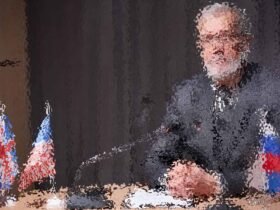
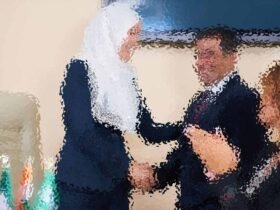


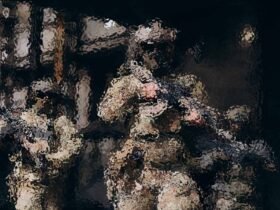
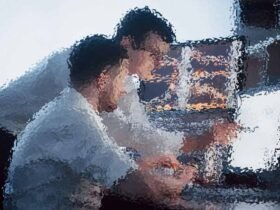
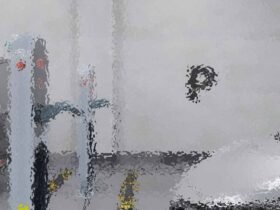

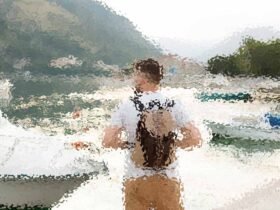
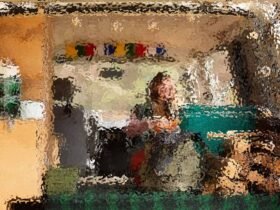



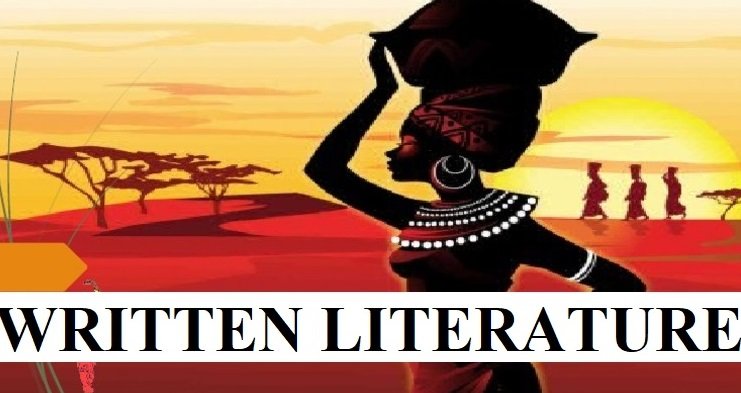



Leave a Reply